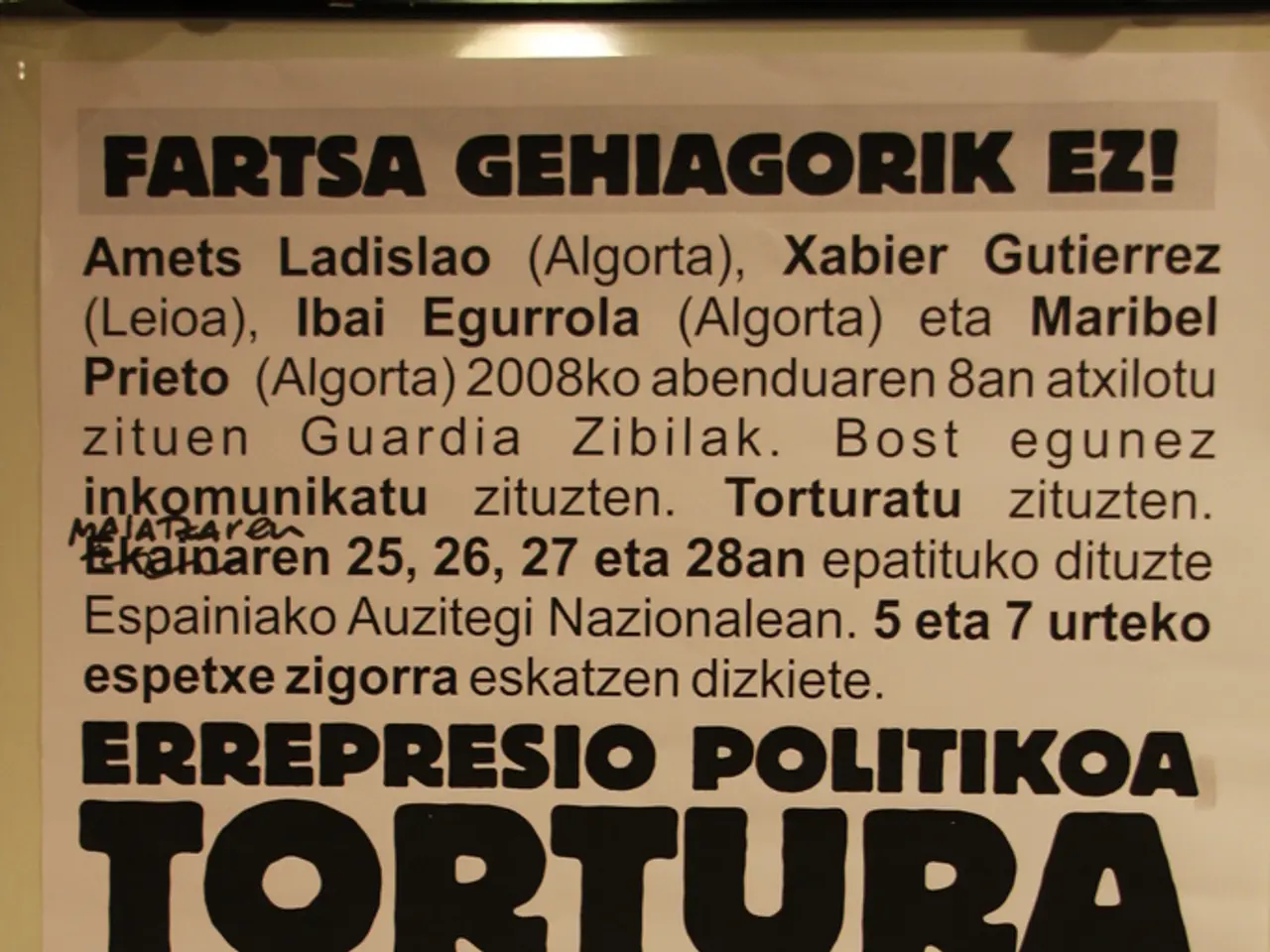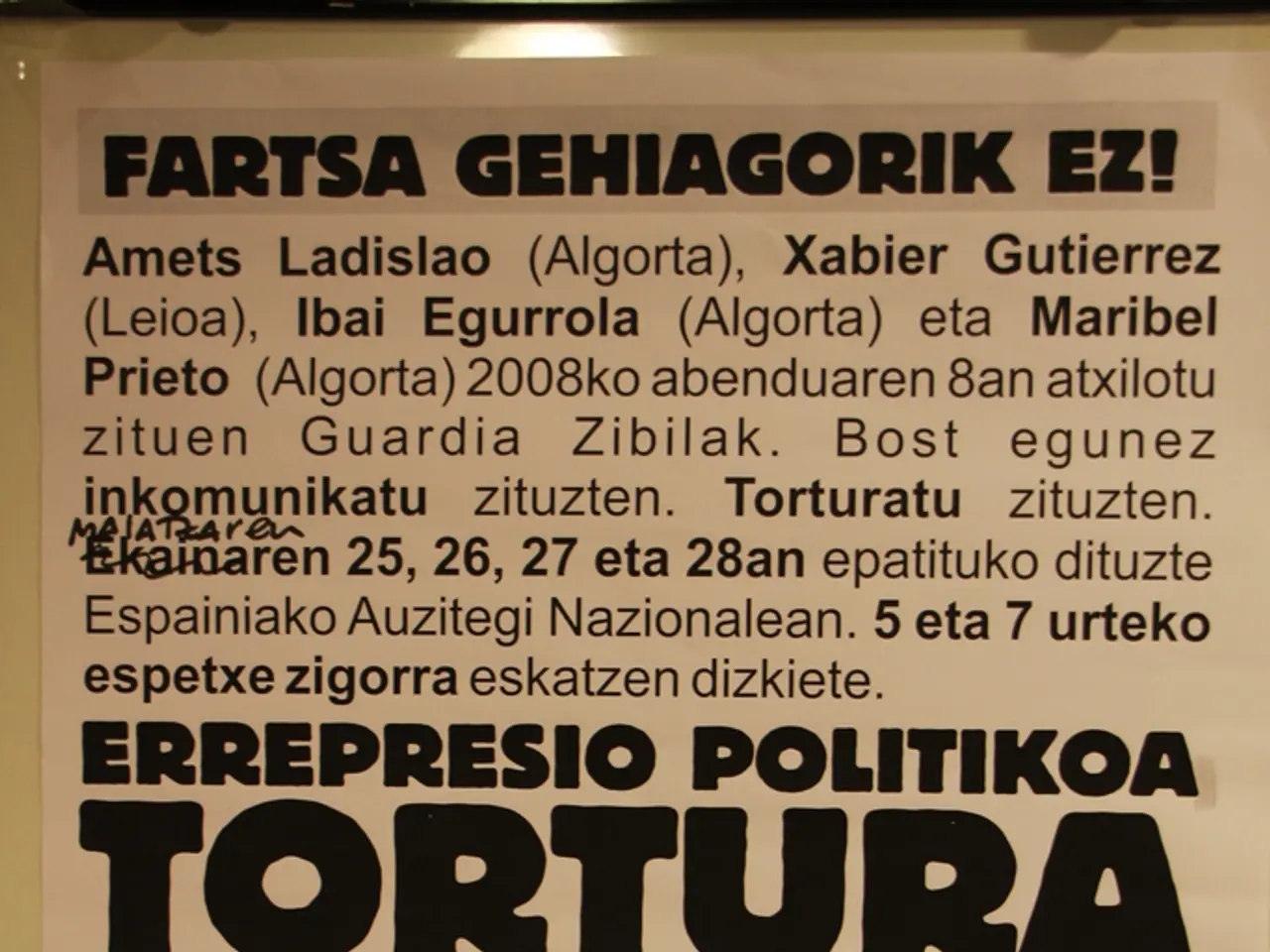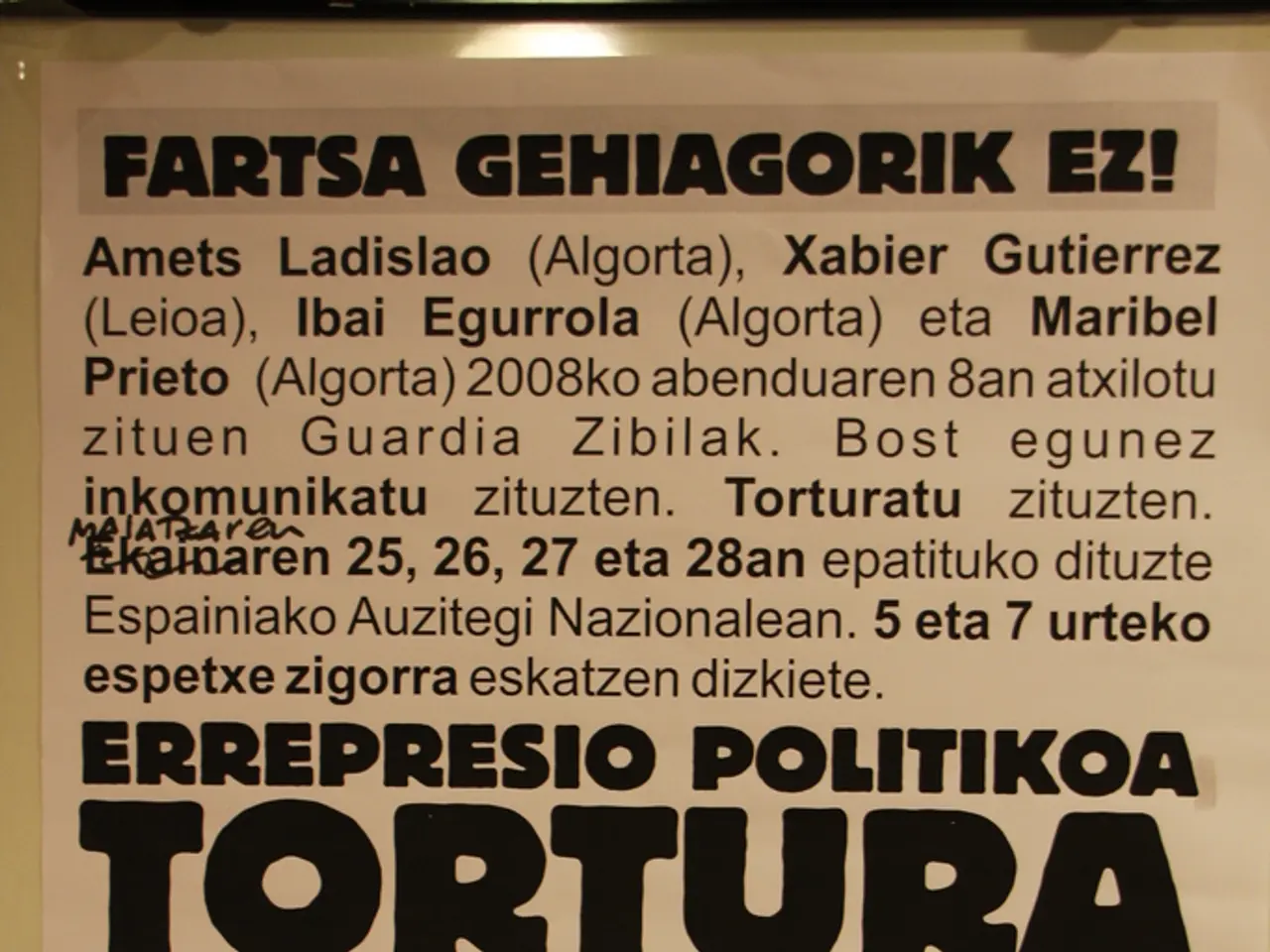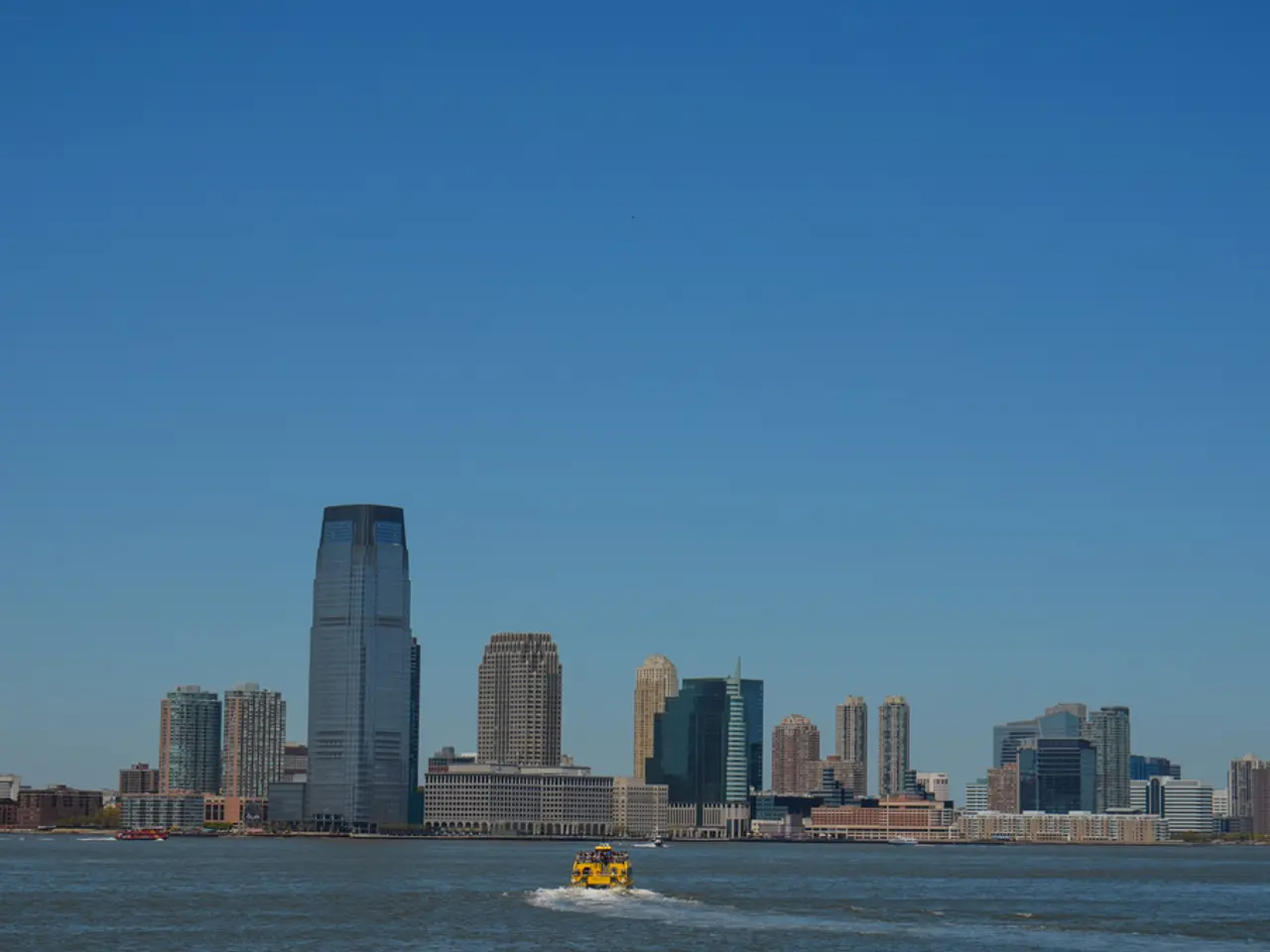Spain's ruling party issues a prohibition on party members engaging in the employment of sex workers.
Spain is currently grappling with a significant political crisis, with Prime Minister Pedro Sánchez and his Spanish Socialist Workers’ Party (PSOE) under intense scrutiny. The crisis, which began in 2025, has been fuelled by corruption investigations involving Sánchez's closest circle and his governing coalition.
At the heart of the crisis is the arrest of Santos Cerdán, PSOE's third-ranking figure, on bribery charges. Spain's Civil Guard has linked Cerdán to corrupt practices, though he claims political persecution. Other officials and associates close to Sánchez are also under investigation, with allegations of illegal donations, tax evasion, and kickbacks for public contracts.
The crisis has been further heightened by the resignation of Francisco Salazar, a close ally of Sánchez, due to sexual harassment allegations. In response, the Socialist party announced a leadership shake-up, replacing Cerdán as its number three official with Rebeca Torro, a 44-year-old lawyer.
The coalition partner Sumar, led by Yolanda Díaz, is demanding a "180-degree turn" in PSOE’s social policies and relations, threatening to withdraw support if changes are not made. Regional parties like the Basque Nationalist Party (PNV) and Catalan pro-independence parties Junts and ERC are also pushing for more explanations and transparency.
The opposition Popular Party (PP), led by Alberto Núñez Feijóo, is capitalising on the Socialists' stumbles. The PP has accused the PSOE of "mafia practices" and "systemic corruption," organising multiple large-scale protests demanding early elections. Despite the PP slightly leading in polls, no motion of no confidence has been launched yet, partly due to the reluctance of regional parties to support right-wing populists like Vox.
Sánchez, however, has ruled out resignation and snap elections, vowing to complete the term scheduled until 2027. He characterises the corruption probes as right-wing smear campaigns and insists on maintaining control of the government. Sánchez compared himself to a captain who stays to steer the ship through a storm.
Feijoo, on the other hand, said that Spaniards deserve a government that doesn't lie to them, doesn't rob them, but serves them. He claimed that his party is the only alternative to the current state of decline in Spain and the answer to Spain's divisions and political fatigue.
The unfolding situation remains fluid with potential for significant party realignments or government reshuffles depending on how the coalition partners and the judiciary proceed. The crisis, if not managed effectively, could lead to a shift in Spain's political landscape.
- The general-news in Spain is dominated by the ongoing political crisis, with crime-and-justice investigations implicating Prime Minister Pedro Sánchez and his PSOE party, including the arrest of Santos Cerdán on bribery charges.
- The political landscape in Spain could experience significant shifts as a result of the ongoing crisis, with the opposition Popular Party, led by Alberto Núñez Feijóo, capitalizing on the PSOE's challenges by accusing them of systemic corruption and organizing large-scale protests demanding early elections.








